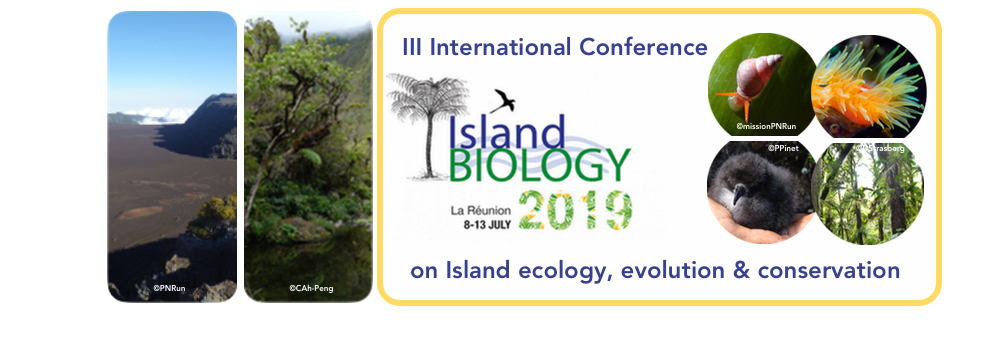Animal-mediated seed dispersal by frugivorous birds, bats and mammals is central to the ecology and functioning of ecosystems on islands, but whether and how frugivory-related traits have affected plant speciation on islands remains little explored. Small-fruited plants (i.e. fruits < 4 cm) predominantly rely on seed dispersal by small-sized frugivores, such as birds, bats and small-bodied mammals. These small-sized frugivores show restricted dispersal with occasional long-distance dispersal, which may cause disrupted gene flow among plant populations and therefore increase the probability of genetic differentiation and allopatric speciation. Similarly, dispersal to isolated oceanic islands may facilitate speciation.
Using a global species-level phylogeny with comprehensive data on fruit sizes and plant species distributions in a comparative framework, we test whether fruit size and island distributions have affected speciation rates of palms (Arecaceae, ca. 2500 species), a plant family characteristic of tropical rainforests. Globally, the results reveal that palms with small fruit sizes have increased speciation rates compared with those with large (megafaunal) fruits. Interestingly, speciation rates of small-fruited palms are particularly high on oceanic islands in Southeast Asia, Australasia and the Pacific.
These results suggest that small fruit sizes may have facilitated the colonisation of isolated islands by strong-flying, ocean-crossing frugivores (e.g. frugivorous hornbills, fruit pigeons and fruit bats), with subsequent speciation of small-fruited palm lineages. Thus, frugivory-related traits in combination with geography and the movement behaviour of frugivores can influence evolutionary radiations of fleshy-fruited plants.

 PDF version
PDF version
